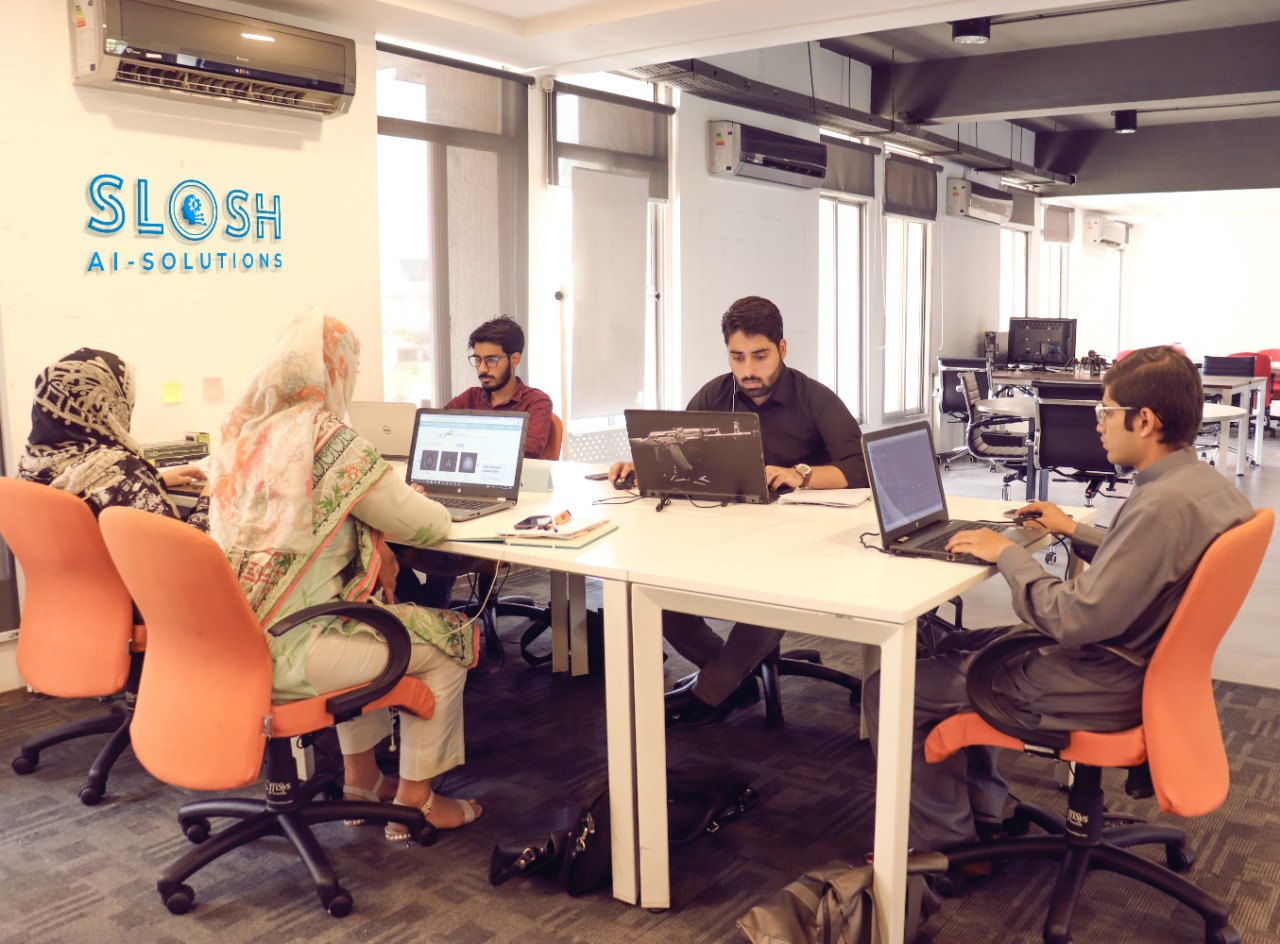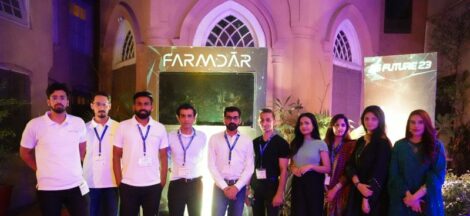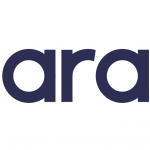The world has progressed so much, from autonomous drones to self-driving cars and Pakistan is just moving on from the infamous Mehran. Or are we? Pakistanis aren’t actually far behind. The IT industry of Pakistan is actually considered to be one of the most emergent sectors in Asia. All it needs is the right exposure. That’s why today we are interviewing Aiman – the founder of Slosh AI Solutions which is a startup at the National Incubation Center working on a system that can identify brain tumours effectively by leveraging the power of AI and deep learning.
So give me a little background on yourself and how you started this company? How did you come up with the idea?
In 2018, I lost a very close family member due to cancer. The major reason behind all this was slow and late diagnosis. Our family tried all means but the cancer reached a stage where it was not curable. Also, in the same year another close relative of mine went through a life threatening surgery because of misdiagnosis. So, I thought of building assistive tools that can assist radiologists in diagnosing these diseases with more accuracy. Humans make mistakes and so do the machines but if both of them are put together, wonders can happen. I completed my Masters in October 2019. Although I am an Electrical Engineer, I switched courses in MS to learn machine learning and image processing.
When you start with this particular brain tumour project, one of the major problems with ML/AI problems is the lack of existing datasets, so how did you collect the data to build the product?
Data is the backbone for every research; and the importance of credible datasets for medical research cannot be negated. For brain tumour, there is a universally accepted dataset named “BraTS” ; since this is a standardized dataset, it can be used to compare results anywhere across the world. We are using that dataset for our product.
Give me an idea of how accurate your product is like the brain tumour application?
Basically, it’s difficult to give you a value that we have 80% accuracy or something because our code is broken into chunks. Like one chunk would be giving 90% and the other would be giving 70%. So currently, we are working on a Minimum Viable Product (MVP). Once we are done with that, then we can test our overall product and give you a definite value of our accuracy. We still need to validate that product with real-world data from local hospitals and actually check it’s accuracy. We are linking up with hospitals and doctors but once we are done, then we can let you know.
What were the problems you faced during this journey, from your masters to applying in NIC?
I have struggled a lot in materializing this idea. I tried to connect with people already working on such problems but the main issue in Pakistan is lack of research implementation. Real value can be created if we bridge the gap between researchers and product developers. My family was really supportive, they have been with me no matter what happens. Even if I think of giving up, they really push me forward. The best thing is that we are trying our best to build something that can really help humanity. After my selection at the NIC, things started going pretty well.
How has COVID affected your company or your research?
I have been doing the groundwork for this idea since November 2019; I tried to collaborate with a lab where we could work on this but the lab got closed temporarily due to COVID. It felt like a huge backlash for me but later I realized that I needed time to think of it from a business perspective so I started working on that. I did my own research, made a roadmap, designed pitches and established a company as a sole proprietor. In June, I gave an online pitch and got really good feedback from that. Then I got selected at the National Incubation Center and my family encouraged me to go for it. We were also among the ten startups that came to the NIC when it opened again after COVID and it’s a really good space.
If someone wants to start off in AI, what would your recommendation be?
My recommendation would be to upskill yourself through online courses, like Coursera, and edX as much as you can. We didn’t really have those in our time. So take them, and take them seriously and see which field you want to join. I took AI and ML courses as well. Also, try connecting the bits of business and engineering together. This is much needed when you want to do business. And last but not least get connected with any incubation facility available. Even if you have zero knowledge in business, they will guide you in the best way possible. Getting selected for incubation at the NIC has been a great breakthrough for my team-the mentorship, industry linkages and the curriculum sessions have helped us in refining our product and business model. I would encourage all entrepreneurs to apply to the NIC; currently applications are open for its 9th cohort, which is a 6 month fast track incubation program, targeting entrepreneurs looking to leapfrog towards growth. Interested candidates can visit https://nicpakistan.pk/cohort-9/ to apply for the program.






 Daraz apologizes for the ‘drone incident’, refunds the customer and delists the seller
Daraz apologizes for the ‘drone incident’, refunds the customer and delists the seller